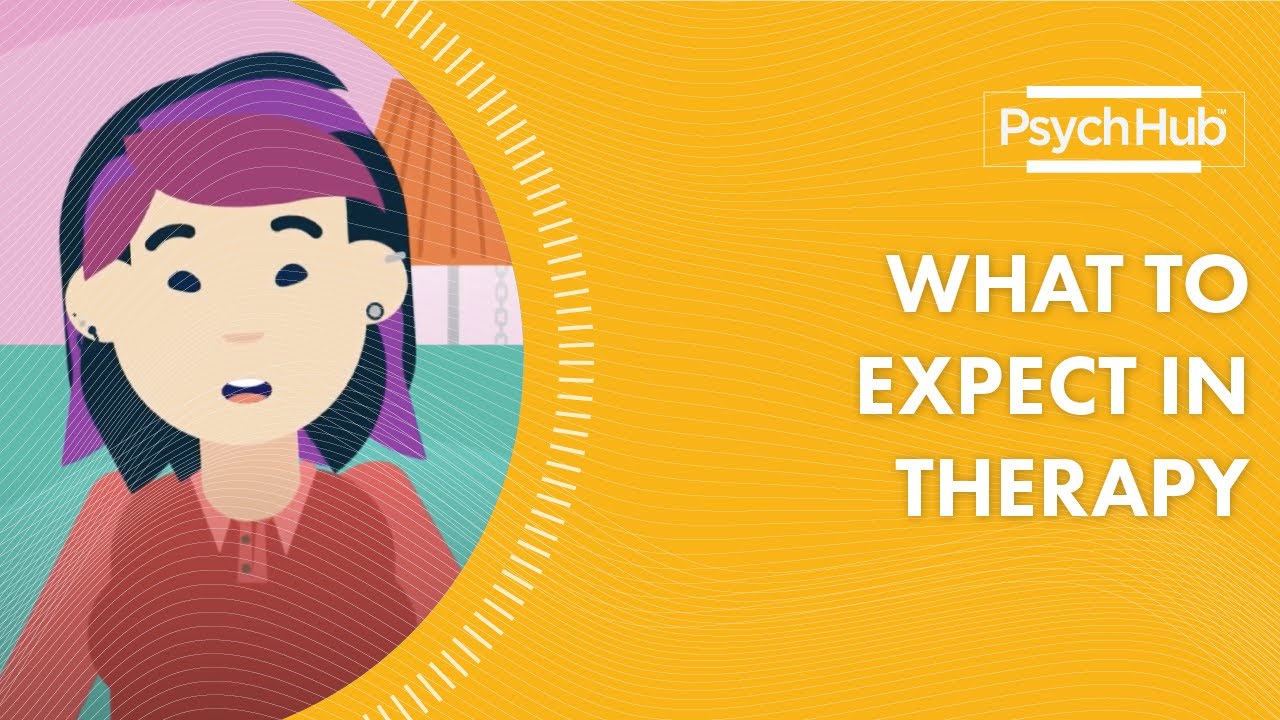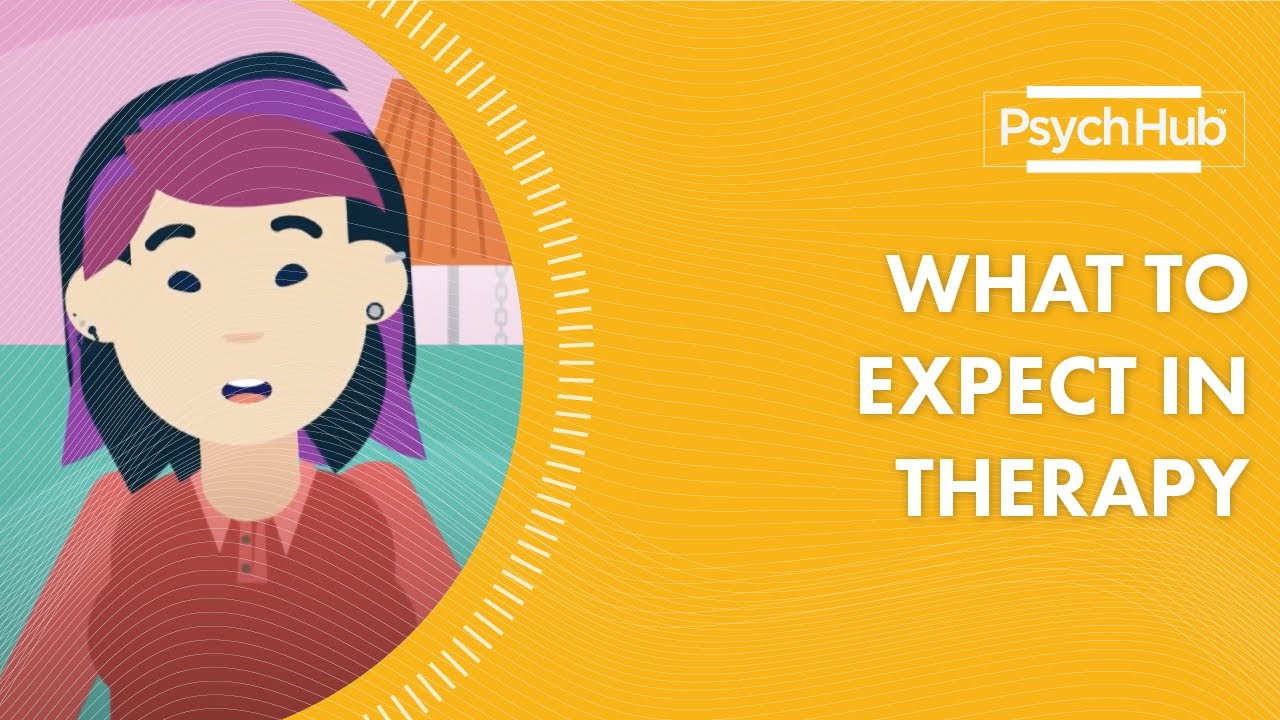Welcome to “What to Expect in Therapy,” a video by Psych Hub that aims to provide information and guidance for individuals embarking on their therapy journey. Attending your first therapy appointment can be nerve-wracking when you don’t know what to expect. In this video, you’ll gain insights on what to anticipate in therapy, including the various types of psychotherapy available, the importance of evaluating a therapist’s credentials, and the collaborative role you play in your own treatment. You’ll also learn valuable tips on how to maximize your experience in therapy and navigate the process towards personal growth and healing. Whether you’re new to therapy or seeking to deepen your understanding, this video offers a valuable resource to support your mental health journey.
Here is some interesting content that Psych Hub provides to help you on your mental health journey. From learning about mental health terminology and practicing positive self-talk to understanding the benefits of outpatient behavioral health and incorporating mindfulness into your daily life, this comprehensive playlist offers a wealth of knowledge and tools to support your mental well-being. Additionally, you’ll find insights into the impact of social media on mental health and strategies for maintaining a healthy digital life. By exploring these resources, you can empower yourself to imagine a better future for everyone by becoming an important steward of your own well-being and that of your loved ones. Start your learning journey now at www.psychhub.com. Remember, the information in this video is not a substitute for professional advice, diagnosis, or treatment. If you or someone you know is experiencing mental health symptoms, please consult a trained medical professional or a licensed mental health provider.

Mental Health Terminology
Understanding the language of mental health
In the field of mental health, it is essential to have a solid understanding of the terminology used. Familiarizing yourself with the language of mental health can help you communicate more effectively with professionals, understand research and literature, and promote awareness and understanding in your community. Some key terms include depression, anxiety, bipolar disorder, schizophrenia, post-traumatic stress disorder (PTSD), and obsessive-compulsive disorder (OCD), to name a few. Each term represents a specific mental health condition and understanding their definitions can play a vital role in recognizing and addressing mental health challenges.
Significance of terms in psychology and therapy
In addition to understanding the basic language of mental health, it is important to recognize the significance of specific terms in the field of psychology and therapy. Terms such as psychotherapy, cognitive-behavioral therapy (CBT), dialectical behavior therapy (DBT), and mindfulness have become increasingly common and are integral to the mental health treatment landscape. Psychotherapy refers to talk therapy, which involves working with a trained therapist to address thoughts, emotions, and behaviors. CBT focuses on identifying and changing negative thought patterns and behaviors, while DBT emphasizes developing skills to manage emotions and enhance interpersonal relationships. Mindfulness, on the other hand, involves being fully present in the moment and nonjudgmentally observing one’s thoughts and feelings. Understanding these terms can provide insight into the various approaches and techniques used in therapy.
Positive Self-talk
Harnessing the power of words
The way we talk to ourselves can have a profound impact on our mental well-being. Positive self-talk involves using compassionate and empowering language to uplift ourselves and counter negative thoughts and beliefs. By consciously choosing positive and encouraging words, we can reshape our mindset, boost self-esteem, and cultivate a more positive outlook on life. Instead of engaging in self-criticism and negative self-talk, we can choose to speak kindly and encouragingly to ourselves, fostering an inner environment of support and self-compassion.
Reshaping mindset and boosting self-esteem
Positive self-talk is a powerful tool for reshaping our mindset and transforming our perception of ourselves. By consistently reinforcing positive affirmations and encouraging statements, we can challenge and rewire negative thought patterns and beliefs. Over time, this can lead to improved self-esteem and a more positive self-image. By replacing self-deprecating thoughts with empowering and uplifting statements, we can cultivate a stronger sense of self-worth and develop a more resilient mindset.
Building resilience
Positive self-talk plays a crucial role in building resilience, which is the ability to bounce back from adversity and navigate life’s challenges with strength and adaptability. When faced with setbacks or difficulties, using positive self-talk can help us reframe the situation and find solutions rather than becoming overwhelmed by negative emotions. It can also provide us with the motivation and confidence to persist in the face of obstacles. By using positive self-talk, we can develop a resilient mindset that allows us to face life’s ups and downs with greater ease and grace.
Outpatient Behavioral Health
Benefits and procedures of outpatient care
Outpatient behavioral health refers to mental health services that are provided on an outpatient basis, meaning individuals receive treatment without being admitted to a hospital or residential facility. There are several benefits to outpatient care. First and foremost, it allows individuals to continue their daily routines and responsibilities while receiving treatment. It offers flexibility in terms of scheduling appointments and can be more cost-effective compared to inpatient care. Outpatient care also provides a higher level of privacy and allows individuals to receive personalized treatment in a comfortable and familiar environment.
The procedures for accessing outpatient behavioral health services typically involve an initial assessment or intake process. This may include a comprehensive evaluation of an individual’s mental health history, symptoms, and current functioning. Based on this assessment, a treatment plan will be developed, outlining the goals and interventions that will be utilized during the course of treatment. Treatment sessions are typically scheduled on a regular basis, such as weekly or bi-weekly, and may involve individual therapy, group therapy, medication management, or a combination of these approaches.
Differences from inpatient care
outpatient care differs from inpatient care in several ways. Inpatient care refers to treatment that takes place within a hospital or residential facility, where individuals stay overnight or for an extended period of time. Inpatient care is typically recommended for individuals who require intensive or 24-hour care due to the severity of their symptoms or the need for a controlled environment. Outpatient care, on the other hand, allows individuals to receive treatment while maintaining their daily routines and living arrangements.
Another key difference between outpatient and inpatient care is the level of support and monitoring provided. Inpatient care often involves round-the-clock monitoring and supervision by a multidisciplinary team of healthcare professionals. Outpatient care, on the other hand, provides more structured and focused treatment during scheduled appointments, but does not involve continuous monitoring. This difference in intensity and level of support is often determined by the individual’s specific treatment needs and the severity of their symptoms.
It is important to note that the decision between outpatient and inpatient care is typically made in collaboration with a mental health professional, taking into account the individual’s specific needs, treatment goals, and level of support available outside of treatment.



